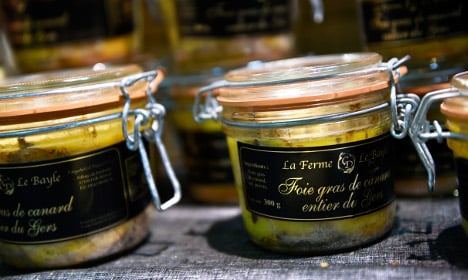- France imposes three-month ban on making foie gras
- French foie gras industry warns of Christmas shortages
 Photo: AFP
Photo: AFP
The price of foie gras is set to rocket in France once again this Christmas as the ravaged industry continues to suffer the effects of two outbreaks of avian flu in as many years.

 Photo: AFP
Photo: AFP